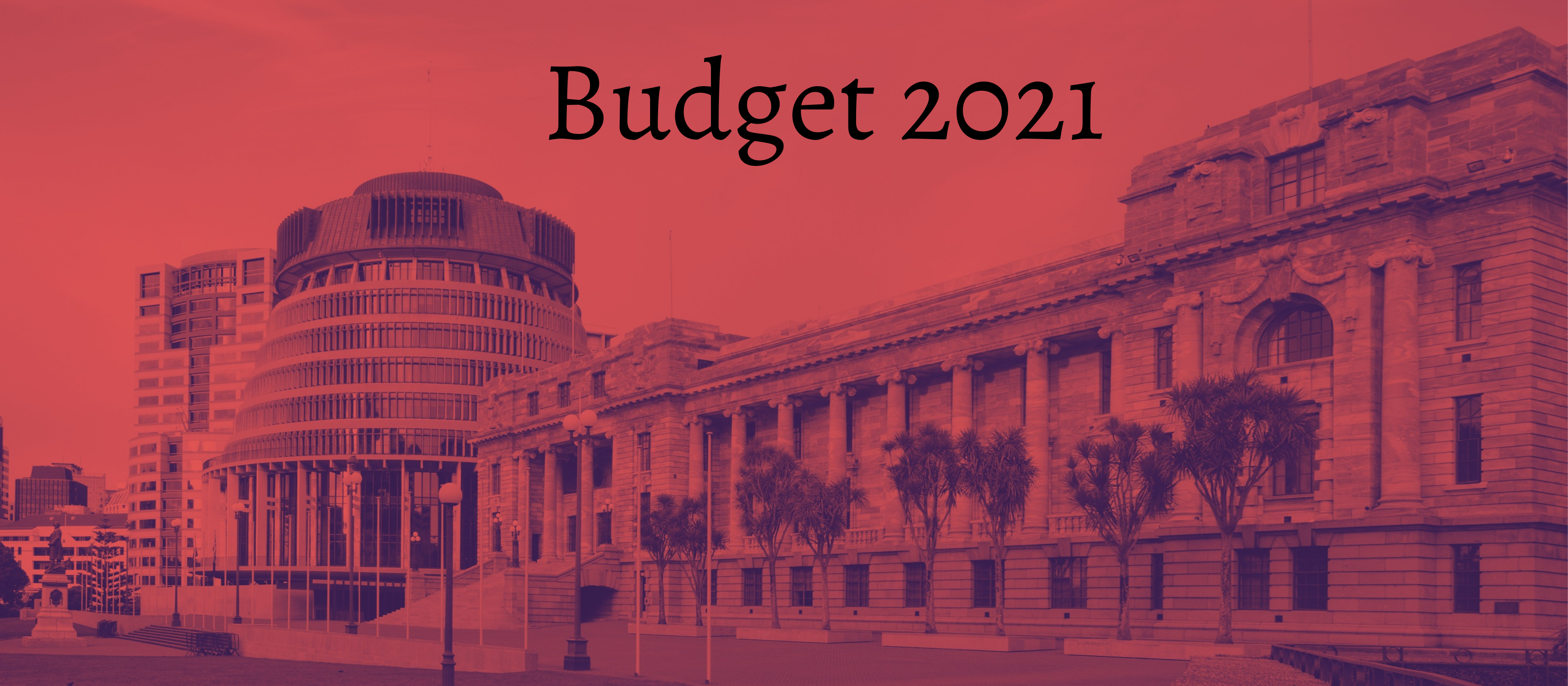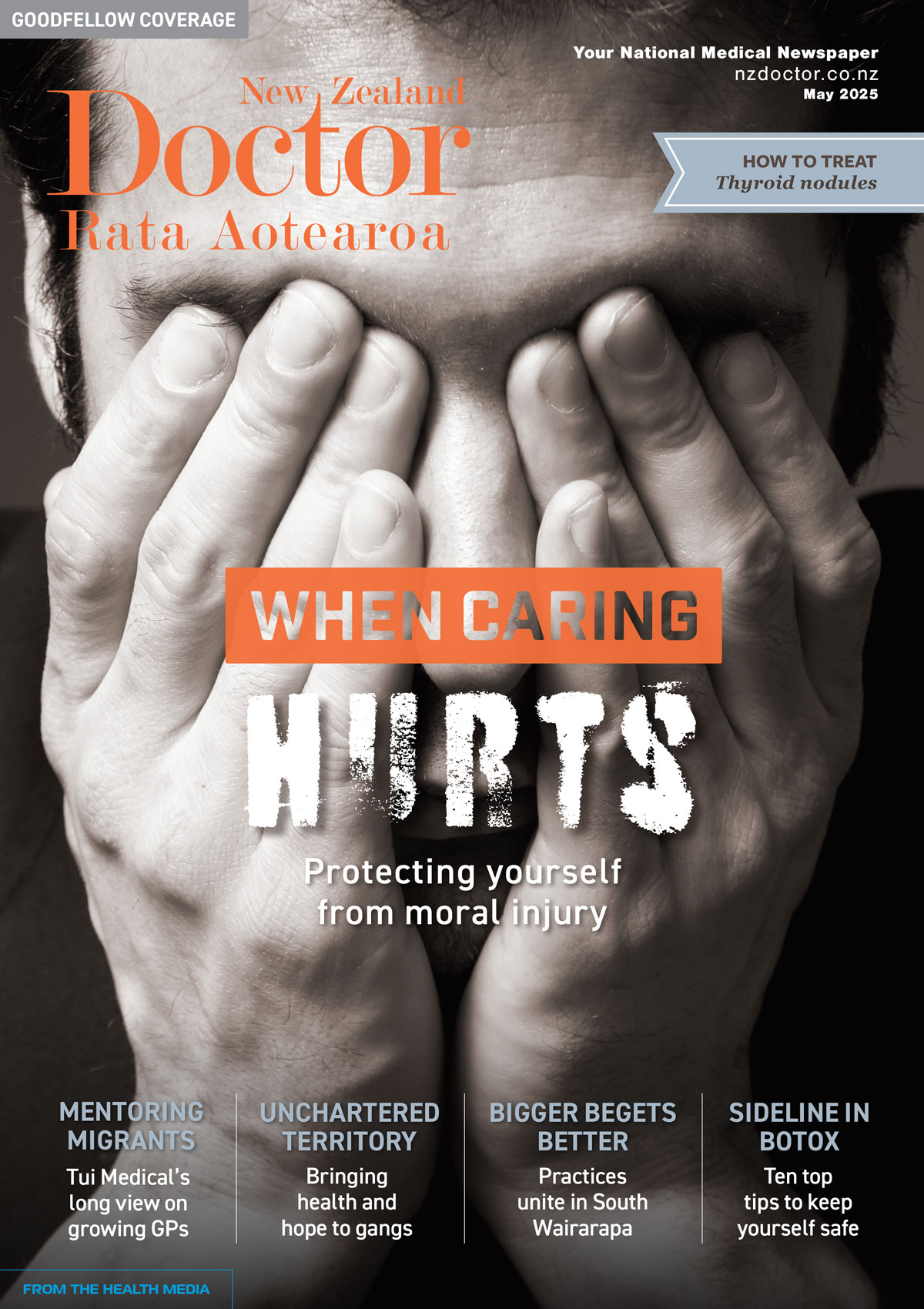Respiratory physician Lutz Beckert considers chronic obstructive pulmonary disease management, including the prevention of COPD, the importance of smoking cessation and pulmonary rehabilitation, and the lifesaving potential of addressing treatable traits. He also discusses the logic of inhaler therapy, moving from single therapy to dual and triple therapy when indicated, as well as other aspects of management
Budget 2021: Hāpai Te Hauora Budget Wishlist for 2021
Budget 2021: Hāpai Te Hauora Budget Wishlist for 2021

Hāpai Te Hauora, the largest Māori public health collective in Aotearoa, outlines key priority areas it hopes to see for Budget 2021
Health
- An substantial increase in dedicated public health and disease prevention funding specifically for Māori Public Health
- The prioritisation of resourcing to kaupapa Māori and Pasifika led approaches in line with the government strategies
- Significant investment into the Māori Health Authority to match the population and health need equitably
- Funding to enable appropriate cultural safety training across medical professionals
- Increased investment into Māori medication subsidies which seeks to remove barriers to access due to cost
- A prioritisation of budget to action the required steps to achieve a Smokefree 2025 for Māori and all underserved populations
- An increasing percentage of the excise tax take per annum for the years 2021-2025 (e.g. 10%, 15% etc)
- The buy-out of all alcohol sponsorships to remove the glamorisation and association between alcohol and sports, coupled with the appropriate legislation based on the success of the tobacco sponsorship buy-out
- A buy-out of gambling based sponsorships to remove the glamorisation of problem gambling and community do-good.
Housing
- Provision of funding to enable whānau Māori have pathways to stable home occupation, with the required wrap around support, and neighbourhood construction that enables safety and wellness of all members of that community
- Significant investment that demonstrates commitment to warm, safe, dry and secure housing to ensure that there are better outcomes for Tamariki
Community wellbeing
- Universal Basic Income: A Universal Basic Income would confer upon all New Zealanders the right to live and be well
- Resourcing of initiatives that support food sovereignty and food security
- Budget investment aligned to build and restore ancestral knowledge systems, a practical example being the creation, sustainability and utilisation of Pā Harakeke to create Wahakura (woven flax basket) for sleeping babies safely in the prevention of SUDI
- Funding to support Māori responses to community well-being and mobilisation, including the provision of, and investment in, digital connection, virtual engagement and communication tools
- Dedicated budget to the fulfilment of Māori specific mental health initiatives and increased Māori leadership in the mental health space
Research
- Dedicated research and evaluation allocation for Māori and Pacific community-led projects exploring wellbeing including individual, whānau and environmental sustainability initiatives
Business Sustainability
- Dedicated funding to organisations who are dependent on funding from harmful activities and commodities to sustain their business model
- Dedicated approaches to supporting economic sustainability and growth for Māori-owned and operated businesses
Justice
- Emphasis on funding for rehabilitation in the criminal justice system, especially culturally appropriate services for Māori
- Investment to review the MODA (Misuse of Drugs Act) and the decriminalisation of cannabis
Education
- Te Reo Māori made compulsory in all schools with an increase in funding of teaching resources in Te Reo Māori
- Access to comprehensive digital learning platforms and devices that enable learning in all places and spaces
- Equitable support for kohanga reo institutes with effective transition into ‘Ready for School programmes’ Whānau Ora
- Significant funding increases for Whānau Ora, reflecting the importance of by Māori for Māori approaches in determining hauora, which has been demonstrated during the COVID-19 pandemic.
Selah Hart, CEO of Hāpai Te Hauora says " Māori Public Health, which focuses not on just preventing disease, but enabling sustained wellbeing is one of the most overlooked areas of investment, yet has the most potential to yield the significant changes needed to close the equity gap".
We hope that the significant shake up of the health system is the start of re-imaging how we provide a holistic approach to wellbeing that is demonstrated and addressed across all agencies of government. "It’s hard because these sustained issues of poverty, poor health, and poor housing, to name just a couple, are complex and require cross-agency responses, and that requires processes and systems to organise themselves to respond to need, which we know has not worked well and hence a newly proposed centralisation of the health system. We hope this government’s budget truely reflects its responsibility to Te Tiriti o Waitangi, and that they will act boldly to make meaningful change."





![Barbara Fountain, editor of New Zealand Doctor Rata Aotearoa, and Paul Hutchison, GP and senior medical clinician at Tāmaki Health [Image: Simon Maude]](/sites/default/files/styles/thumbnail_cropped_100/public/2025-03/Barbara%20Fountain%2C%20editor%20of%20New%20Zealand%20Doctor%20Rata%20Aotearoa%2C%20and%20Paul%20Hutchison%2C%20GP%20and%20senior%20medical%20clinician%20at%20T%C4%81maki%20Health%20CR%20Simon%20Maude.jpg?itok=-HbQ1EYA)
![Lori Peters, NP and advanced health improvement practitioner at Mahitahi Hauora, and Jasper Nacilla, NP at The Terrace Medical Centre in Wellington [Image: Simon Maude]](/sites/default/files/styles/thumbnail_cropped_100/public/2025-03/2.%20Lori%20Peters%2C%20NP%20and%20advanced%20HIP%20at%20Mahitahi%20Hauora%2C%20and%20Jasper%20Nacilla%2C%20NP%20at%20The%20Terrace%20Medical%20Centre%20in%20Wellington%20CR%20Simon%20Maude.jpg?itok=sUfbsSF1)
![Ministry of Social Development health and disability coordinator Liz Williams, regional health advisors Mary Mojel and Larah Takarangi, and health and disability coordinators Rebecca Staunton and Myint Than Htut [Image: Simon Maude]](/sites/default/files/styles/thumbnail_cropped_100/public/2025-03/3.%20Ministry%20of%20Social%20Development%27s%20Liz%20Williams%2C%20Mary%20Mojel%2C%20Larah%20Takarangi%2C%20Rebecca%20Staunton%20and%20Myint%20Than%20Htut%20CR%20Simon%20Maude.jpg?itok=9ceOujzC)
![Locum GP Helen Fisher, with Te Kuiti Medical Centre NP Bridget Woodney [Image: Simon Maude]](/sites/default/files/styles/thumbnail_cropped_100/public/2025-03/4.%20Locum%20GP%20Helen%20Fisher%2C%20with%20Te%20Kuiti%20Medical%20Centre%20NP%20Bridget%20Woodney%20CR%20Simon%20Maude.jpg?itok=TJeODetm)
![Ruby Faulkner, GPEP2, with David Small, GPEP3 from The Doctors Greenmeadows in Napier [Image: Simon Maude]](/sites/default/files/styles/thumbnail_cropped_100/public/2025-03/5.%20Ruby%20Faulkner%2C%20GPEP2%2C%20with%20David%20Small%2C%20GPEP3%20from%20The%20Doctors%20Greenmeadows%20in%20Napier%20CR%20Simon%20Maude.jpg?itok=B0u4wsIs)
![Rochelle Langton and Libby Thomas, marketing advisors at the Medical Protection Society [Image: Simon Maude]](/sites/default/files/styles/thumbnail_cropped_100/public/2025-03/6.%20Rochelle%20Langton%20and%20Libby%20Thomas%2C%20marketing%20advisors%20at%20the%20Medical%20Protection%20Society%20CR%20Simon%20Maude.jpg?itok=r52_Cf74)
![Specialist GP Lucy Gibberd, medical advisor at MPS, and Zara Bolam, urgent-care specialist at The Nest Health Centre in Inglewood [Image: Simon Maude]](/sites/default/files/styles/thumbnail_cropped_100/public/2025-03/7.%20Specialist%20GP%20Lucy%20Gibberd%2C%20medical%20advisor%20at%20MPS%2C%20and%20Zara%20Bolam%2C%20urgent-care%20specialist%20at%20The%20Nest%20Health%20Centre%20in%20Inglewood%20CR%20Simon%20Maude.jpg?itok=z8eVoBU3)
![Olivia Blackmore and Trudee Sharp, NPs at Gore Health Centre, and Gaylene Hastie, NP at Queenstown Medical Centre [Image: Simon Maude]](/sites/default/files/styles/thumbnail_cropped_100/public/2025-03/8.%20Olivia%20Blackmore%20and%20Trudee%20Sharp%2C%20NPs%20at%20Gore%20Health%20Centre%2C%20and%20Gaylene%20Hastie%2C%20NP%20at%20Queenstown%20Medical%20Centre%20CR%20Simon%20Maude.jpg?itok=Z6u9d0XH)
![Mary Toloa, specialist GP at Porirua and Union Community Health Service in Wellington, Mara Coler, clinical pharmacist at Tū Ora Compass Health, and Bhavna Mistry, specialist GP at Porirua and Union Community Health Service [Image: Simon Maude]](/sites/default/files/styles/thumbnail_cropped_100/public/2025-03/9.%20Mary%20Toloa%2C%20Porirua%20and%20Union%20Community%20Health%20Service%20in%20Wellington%2C%20Mara%20Coler%2C%20T%C5%AB%20Ora%20Compass%20Health%2C%20and%20Bhavna%20Mistry%2C%20PUCHS%20CR%20Simon%20Maude.jpg?itok=kpChr0cc)